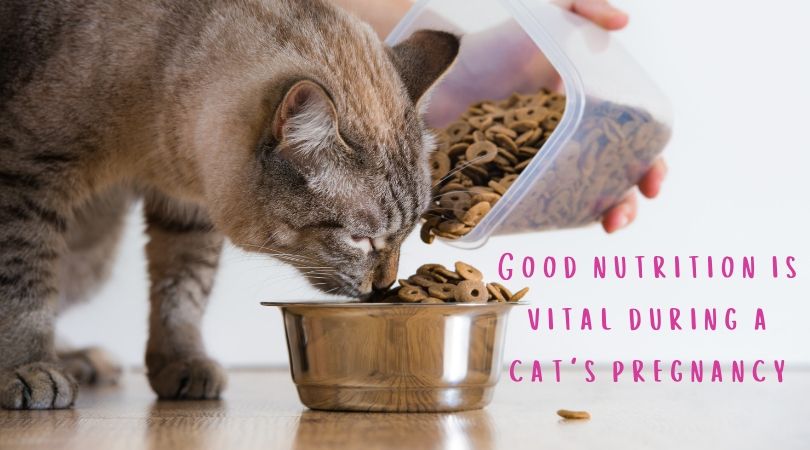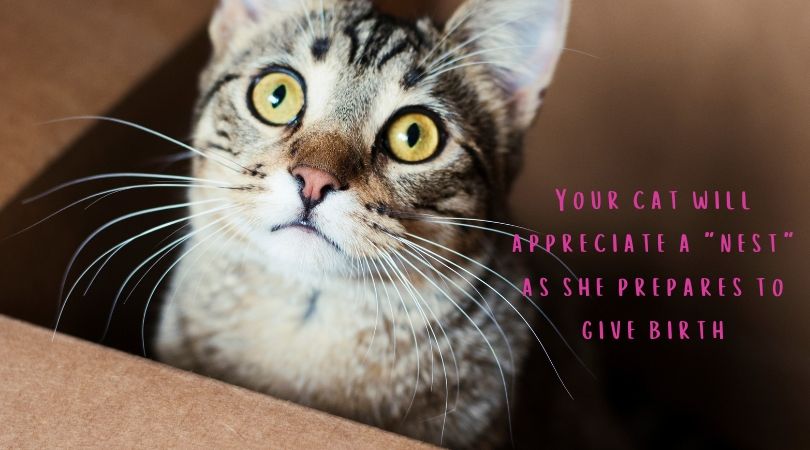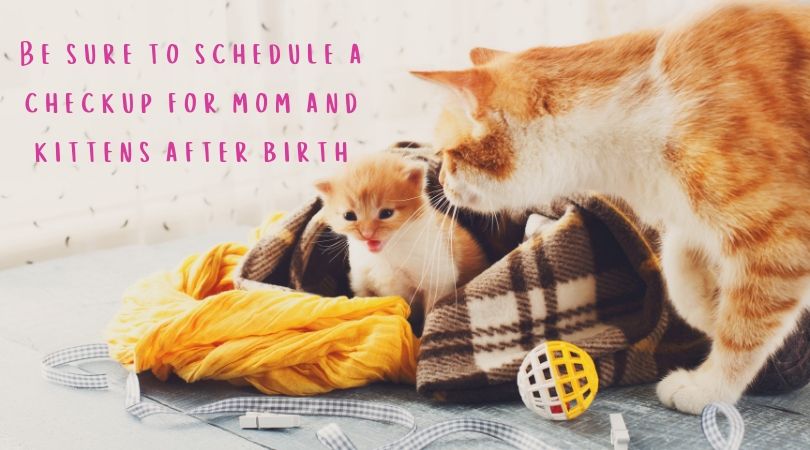We generally recommend having all pet cats spayed or neutered, but we also want to help make sure that, if your cat is pregnant, she receives the very best care. If you believe your cat is pregnant, here are some tips to take care of her.
How to Tell if Your Cat is Pregnant
If you’re not sure if your unspayed cat is pregnant, there are a number of things that may signal that kittens are on the way.
- Physical changes: A pregnant cat can suffer from bouts of “morning sickness,” and will also generally eat more as the pregnancy progresses. Additionally, your cat's stomach will be noticeably bigger after about five weeks, and it will continue to swell until she gives birth. Additionally, her nipples may appear swollen and/or take on a darker, red color.
- Behavioral changes: You might find that your previously loving, friendly cat will go into hiding, or an otherwise apathetic cat has suddenly become a snuggle bug – both of these types of changes in behavior are normal for pregnant cats.
What to Feed Your Pregnant Cat
If you notice signs that your cat may be pregnant and it has been confirmed by your veterinarian, you will need to discuss nutritional needs for your pregnant cat. Now that your cat is eating for two (or three, or four, or five…) she will need additional nutrients – and more of them!

Your veterinary team might recommend switching your cat back to kitten food, which will provide nutritional benefits to her kittens, too. Your cat will need more calories to sustain her kittens, so the general plan may be to increase the amount of food you feed her as your pregnant cat nears her term. However, there will also be less room in her stomach as the kittens grow, so feed her smaller amounts but more often throughout the day.
Drinking lots of water is essential for keeping your pregnant cat hydrated, so you may want to keep a few different water bowls around your home in areas that are easy for her to get to. If your cat has pre-existing health needs, or a sensitive stomach, always check with your vet before making any changes to her food and/or feeding routine.
Taking Care of Your Pregnant Cat
During her pregnancy, you will want to keep your cat relatively active in order to ensure she is fit for giving birth. Avoid any excessively rowdy activity towards the end of your cat’s pregnancy, however. You will need to help her stay calm as she nears her due date, as anything too active could cause her stress. Throughout the pregnancy be sure to pay attention to her appetite and her comfort level. If your cat loses interest in her food or is visibly distressed or agitated, it could signal a problem with her pregnancy.
Preparing for Your Cat to Give Birth

Shortly before her due date, provide your cat with a box or “nest” where she can give birth and care for her newborn kittens. Make sure that this birthing box is large enough for your cat and her litter to be comfortable in, but also tall enough to prevent any curious kittens from making an escape! Keep the nest in a warm place and line it with soft blankets or towels (that you won’t mind throwing away). Try to find a familiar location to put the box that is quiet and out of the way, and show your cat where the box is situated.
Regular Veterinary Checkups for Pregnant Cats
Your veterinary team will help you understand the best schedule for checkups throughout your cat's pregnancy. Additionally, you'll be able to plan together for the big day. You will need to know what is "normal" for at-home delivery, and you will want to be ready to safely transport your cat to the office if need be during labor. It's also vital to have the name, location, and phone number of the closest pet emergency facility in case there are complications outside of regular veterinary business hours.
What to Do When Your Cat Goes into Labor
Your cat is domesticated, so she may not have all of the instincts of a “wild” cat; however, most cats require no intervention at all while giving birth. In fact, your cat may purposely seek out solitude when she goes into labor. Most cats would prefer to be left alone, and they definitely don’t want to be pet or touched while they are giving birth. It’s best to give your pregnant cat as much privacy as possible while also leaving yourself the ability to monitor the birthing process for any signs of issues or distress.
Don’t be surprised if your cat decides to give birth in a location other than the “nest” you have prepared for mom and her kittens. If this occurs, don’t be afraid to move the kittens to the box you prepared after they are born. It’s perfectly fine to pick up and handle newborn kittens; carefully touching them will not cause your cat to abandon her kittens or injure them.
What to Do After Your Cat Gives Birth

After your cat has delivered her kittens, you should take both mom and her kittens to the veterinarian for a post-natal checkup within 24-48 hours. If your cat had an accidental pregnancy, the post-natal checkup is a good time to discuss having your cat spayed to prevent any more surprise litters.
If you have any other questions about pregnancy care for cats, please don’t hesitate to reach out to us!

